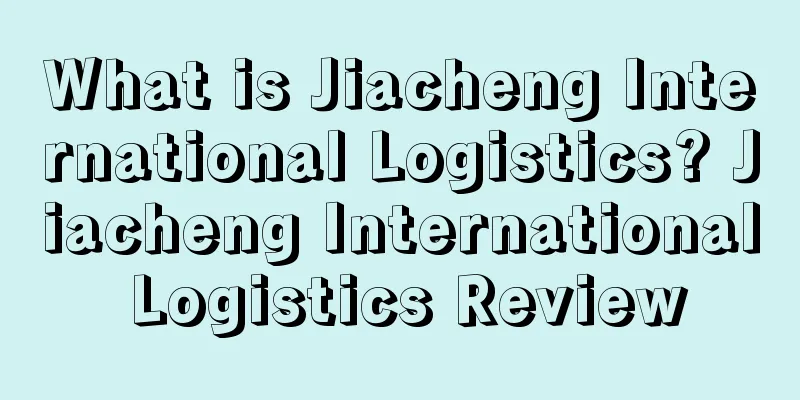There are always talented people emerging in the cross-border arena, and each of them is the leader for three to two years. In that era when distribution was king, Tongtuo, Savi, Aoji and Youkeshu, who were called the "Four Young Masters of South China City", fought their way out and stood under the spotlight of the industry. Their story began at No. 1 Trading Square of South China City. They relied on wholesale of cheap goods such as data cables and charging heads, and went from small counters to overseas stages, and took advantage of the dividends of the times to grow into Amazon's best sellers. However, a wave of account suspensions overwhelmed tens of thousands of Amazon sellers, extinguished the dreams of countless people to get rich, and also flooded a number of top sellers. The former kings of distribution, the four young masters of South China City, became the first targets. Amazon people now The legend of making a fortune by buying a few apartments in Shenzhen Bay is gone, and the industry has also entered a new journey of brand supremacy from the bonus period of wild growth. And have the old kings of the distribution era, represented by the four young men of South China City, caught up with the wheel of the new era?
Shenzhen's cross-border e-commerce cannot avoid Huaqiangbei, just as the West cannot do without Jerusalem. More than a decade ago, in this small business district with a radius of 1.45 square kilometers, you could rent a counter less than one meter wide and start a business with cheap goods such as data cables and mobile phone cases to reap huge profits. This is where the dreams of many cross-border people began, and countless grassroots sellers flocked here to achieve a counterattack, including the four young masters of South China City who later dominated the industry. At that time, cross-border industry business opportunities were surging, and with the buffs of platforms, policies, logistics, foreign trade environment and other factors, making a fortune did not seem to be a difficult thing: backed by the advantage of low-cost supply chain, high-end cross-border often only requires the simplest means of operation - moving thousands of products to Amazon for crazy expansion, and easily harvesting traffic with huge SKUs and massive stores. It was with such a perfect set of sales skills that the four young masters of South China City were able to rise from unknown middlemen to big sellers with annual sales of billions. In 2019, before the outbreak of the epidemic, the total SKUs of Tongtuo and Aoji exceeded 500,000, while those of Savi and Youkeshu were 370,000 and 1 million respectively. These huge SKUs were evenly distributed to hundreds of stores on third-party platforms such as Amazon and eBay, and they widely met consumer needs with rich product categories, created economies of scale and made huge profits. Time is money and efficiency is wealth, which is the consensus of many people. The spirit of long-termism does not seem to exist in the dictionary of early sellers. They think "I don't care about what will happen after my death, I earn as much as I can". Therefore, in order to make quick money, they resort to risky tactics such as fake orders and reviews. Little do they know that the gift of fate has already been secretly marked with a price. At that time, the industry was bathed in dividends, and the extensive gameplay of traffic being king, supplemented by some small "gray means", could hit wherever it was pointed. Few people realized that such a model is easy to build but difficult to maintain - white-label sales can only retain consumers for a while, not forever. When massive SKUs are frantically making money, the invisible bullet of inventory has already been quietly fired. Following the flourishing 2014, the first year of cross-border e-commerce, 2020 has ushered in another watershed. The dividends of the epidemic have driven the explosive growth of the industry, and countless people have boarded the express train of development. For example, Youkeshu, the fourth son of South China City, has successfully ushered in its own highlight moment . In addition to the soaring revenue, it has also blindly optimistically overstocked. However, in 2021, Amazon banned accounts and severely punished various illegal operations, including fake orders and reviews. Three of the four young masters of South China City also crossed the red line and were severely damaged by Amazon's iron fist: - About 340 Youkeshu stores were frozen, and about 130 million yuan of funds were frozen.
- 54 Tongtuo stores were closed, suspected of freezing 41.43 million
- The main brand account of Aoji was banned and all products were removed from the shelves
The sudden closure of a large number of stores undoubtedly cut off their source of income. Coupled with the fact that they could not withdraw huge amounts of funds, the four young masters of South China City were instantly in trouble. The drawbacks of the distribution model were also highlighted at this moment - the huge amount of inventory was difficult to digest. For this reason, the bullet ten years ago hit them right in the eye. After experiencing the wave of account bans, the subsequent performance of the four young masters of South China City plummeted: Youkeshu achieved annual revenue of 1.575 billion yuan in 2021 and a net loss of approximately 1.673 billion yuan; affected by cross-border e-commerce business, Tongtuo's parent company's revenue in 2021 decreased by 11.36%, and its losses soared 208.78% year-on-year. Today, the era of distributing goods seems to have quietly gone away. The glory of the four young masters of South China City has been washed away by a wave of account bans. After that, many sellers no longer hear their names because of the legend of making money, but because of performance losses, or even worse, debt collection and salary collection. After the shock of being banned, what kind of stories did the four young masters of South China City experience? Who was unable to recover from the setback, and who was able to break through and rebuild to gain a new life? There is a tree: facing restructuring Among the four young masters of South China City, Youkeshu was the hardest hit by the wave of account bans and is now mired in huge losses and debts. According to its latest released 2023 performance forecast, Youkeshu expects to achieve revenue of 450 million to 500 million yuan during the reporting period, and net profit attributable to shareholders of the listed company will be -270 million to -360 million yuan, an increase of 2% to 26% over the same period last year. This is the third year that Youkeshu has suffered losses since the account ban. Although the losses have been greatly narrowed, there is still a long way to go before the dawn of profitability. During these three years, Youkeshu did not give up on self-rescue. First, it cleared out its inventory at low prices through offline channels to recover cash flow; second, it reduced its business scale and reduced management costs; third, it adjusted its business strategy and promoted a multi-platform layout. However, while most big sellers are reducing their dependence on Amazon and pursuing brand transformation, Youkeshu's independent website business has encountered obstacles everywhere, so it cut off this line of business. Although Amazon is no longer Youkeshu's largest source of income, it still relies on third-party platforms such as Shopee. In the current overseas environment where brands are king, Youkeshu, which started out as a distribution model, has not been able to completely break away from its original sales mindset. It lacks product differentiation barriers and has not been able to build a strong brand matrix. As a result, it has been left further and further behind as industry homogeneity competition intensifies. To this day, the aftereffects of the distribution of goods and the pain of account suspension are still constraining Youkeshu. The financial report shows that in 2022, Youkeshu's inventory balance was about 557 million yuan, and the balance of impairment provision was as high as 368 million yuan. The high inventory is still the biggest burden for its turnaround, not to mention the hundreds of millions of historical debts that it has been unable to repay so far. On February 19, Youkeshu received a "Notice Letter" from its creditor Shenzhen Yuanyang. ”, Shenzhen Yuanyang applied to the Changsha Intermediate People’s Court for reorganization of Youkeshu on the grounds that it could not repay its due debts, was seriously insolvent and obviously lacked the ability to repay, but had value for reorganization. If Youkeshu successfully implements the restructuring plan, it will help optimize the company's asset-liability structure and improve its ability to continue operations. However, if the restructuring fails, it will be at risk of being delisted and declared bankrupt. From being a powerful company to being on the verge of delisting, it is still unknown when Youkeshu’s turnaround will come. Tongtuo: No destruction, no construction As a big-selling company that was also caught up in the account ban craze, Tongtuo has not had an easy time in recent years. The seeds of hidden dangers were planted long before the account ban. In 2017, Tongtuo went public through a backdoor listing. It also signed a three-year bet agreement with its parent company Huading Co., Ltd. Unfortunately, the performance was not as expected and only one year of performance commitment was completed. For this reason, Tongtuo, which lost the bet, had to compensate Huading Co., Ltd. with more than 500 million yuan. The subsequent account blocking wave made the situation even worse. Under the combined pressure from both inside and outside, Tongtuo's operating conditions further declined. In 2022, the annual revenue of its cross-border e-commerce business fell by 38.47% year-on-year. In fact, before this, Tongtuo realized the short cycle of distribution and the importance of branding. According to industry reports, it began to try brand transformation in 2014 and established an independent brand department in 2016. However, compared with the low-cost and fast-return distribution model, the brand model has a long way to go, so Tongtuo interrupted its efforts in this regard in 2018. After the account blocking wave, promoting brand strategy and strengthening brand business has become an urgent and inevitable choice. To this end, Tongtuo focuses on the business transformation of fine-quality products, and launches three measures to strengthen refined management, optimize product supply and operational efficiency, and fully implement brand transformation. Tongtuo, which plunged into the mainstream of brands, successfully stopped losses in time, and its performance also turned around. In the first half of 2023, the cross-border business it represented achieved revenue of 1.676 billion yuan, a year-on-year decrease of 0.18%; net profit was 3.5078 million yuan, a year-on-year increase of 101.80%, turning losses into profits. Today, Tongtuo has created leading brands covering multiple categories such as GOOLSKY, ANSELF, TOOARTS, and its transformation path can be said to be quite effective. But at this time, Tongtuo made a major decision: to sell itself to another cross-border seller, Huakai Yibai In response , Huakai Yibai said that this acquisition is conducive to the complementarity of both parties in terms of operating model, category and product strength. As for Tongtuo, as the general manager of Huading Holdings said in an internal letter: "Leave the cross-border e-commerce business to professionals", "changing marriage" from Huading Holdings to Huakai Yibai, the distribution king that has been in the limelight in recent years, may also inject new vitality into its development. Aoji: Keep a low profile Compared with the other three companies, Aoji is more low-key. There are not many public performance data released about it, so we have no way of knowing its specific operating conditions in recent years. After encountering a wave of account bans in 2021, several brands under Aukey, including Aukey, were hit. In order to get rid of the risk of huge inventory backlogs, it quickly started a mode of clearing inventory and accelerating brand transformation. Unlike others, Aoji has a foundation of high-quality products. After the storm came, it continued to increase investment, actively promoting multi-platform layout, deepening independent station business and exploring emerging markets and platforms, and on the other hand, focusing on the original track, committed to developing new products and new brands. In December last year, Aoji, which had been silent for a long time, made a big move: it joined hands with home furnishing company Zhejiang Yongqiang to invest in the establishment of a cross -border e-commerce company. The registered capital is 7.5 million yuan, accounting for 75%; Zhejiang Yongqiang accounts for 25%, and has subscribed to a registered capital of 2.5 million yuan. One is a leading cross-border enterprise with many years of experience, and the other has a high-quality supply chain. It can be seen that Aoji, which has been quietly doing great things, hopes to create a new growth curve by entering the hot track of home furnishing. SRW: Brand Harvester In comparison, Savi is obviously having a better life. Also starting out with a distribution model, it began exploring the brand transformation route early on, using a set of hot-selling replication strategies to conquer the world, and successfully incubated dozens of top brands. Savi, who was quite foresighted, did not secretly walk in the gray area to test Amazon's red line, and thus became the only one of the four young masters in South China City who was unscathed by the account ban wave. In July last year, after many twists and turns on its IPO road, Savi finally knocked on the door of capital and was successfully listed on the Shenzhen Stock Exchange. In the face of uncertainty in the market environment last year, Savi achieved counter-cyclical growth in the first three quarters of 2023, with revenue reaching 4.374 billion yuan, a year-on-year increase of 30.27%; net profit was 223 million yuan, a year-on-year increase of 41.71%. Compared with the other three of the four small companies in South China City, whose revenue mainly comes from 3C categories, Savi plunged into the clothing market with higher gross profit margins at the beginning of its establishment. Undoubtedly, Savi also started out as a white-label peddler, relying on a multi-channel, widespread distribution, and low-price strategy to gain a foothold overseas. However, it realized the importance of branding early on, and in 2016 established a brand transformation strategy, positioning its core product line as branded clothing, while deepening its apparel supply chain and strengthening the team's independent development and brand operation capabilities. Since 2019, benefiting from large investments in the transformation phase and the consumption upgrade trend of overseas customers, the market share of the Savi brand has increased significantly, and many brands have broken through the siege in various subcategories of Amazon and established a dominant position. In comparison, Savi, known as the "Amazon blockbuster manufacturing machine", is more adept at brand building. In addition, it adheres to the platform's compliance operating rules, so it has not been sunk by the wave of account bans. It is also the most vocal of the four young masters in South China City. As of 2022, Savi has incubated 63 private brands with revenues exceeding 10 million yuan. The strong brand matrix also enables Savi to stand out in the fiercely competitive clothing market.
One seller said: "When I graduated, I was shocked by the reputation of the Four Young Masters of South China and the Five Tigers of Sakata. I once went to a company for an interview. The tall and gorgeous office space and the sense of efficiency that the cross-border people brought to me were refreshing. But I didn't expect that such a huge cross-border enterprise would collapse one day because of its reliance on Amazon." Not only the big sellers headed by the four young masters of South China City, but also countless small and medium-sized sellers have witnessed the heyday of cross-border trade, and are also accompanied by its stormy present. It is an inevitable law of history that the industry undergoes reshuffle and replacement. Only those who turn the rudder in time and seize the right direction can avoid being eliminated early.
As big sellers who rose to prominence in the era of mass distribution, the four young men of South China City are now in completely different situations. Perhaps in a certain historical period, the reckless approach of mass distribution is the best answer. However, the industry is moving forward, with more and more people trying to grab a piece of the pie, and the platform is also becoming more standardized as its size expands. Distribution is gradually disappearing from the stage of history, and the once traffic-oriented sales mentality is no longer suitable for the development of the times. In the ever-escalating competitive overseas environment, cross-border people can no longer hold on to the mentality of making quick money. Instead, they should slow down, look further ahead, have an extra yardstick to abide by the rules, have more patience for long-term accumulation, and arm themselves with brand armor to avoid being eliminated by the torrent of internal circulation.
|










